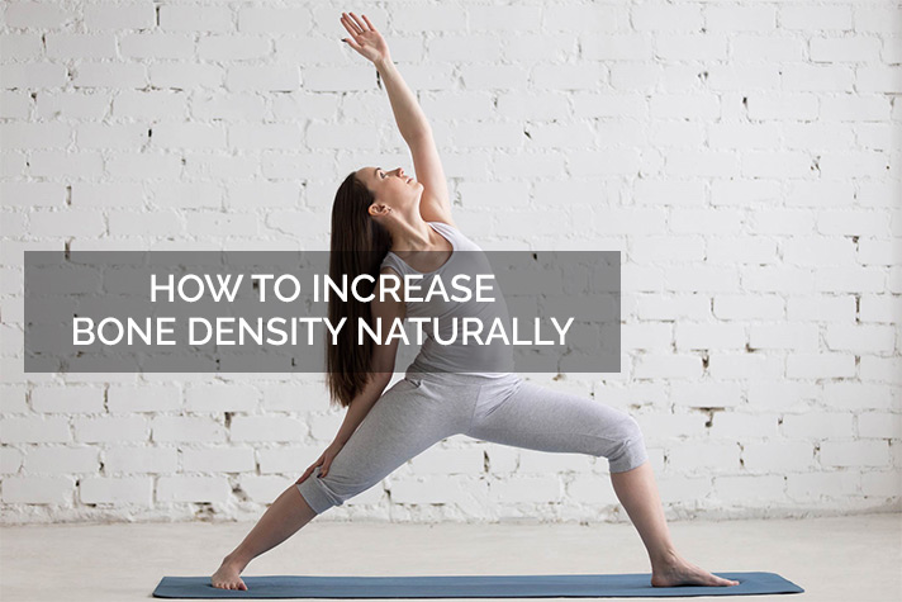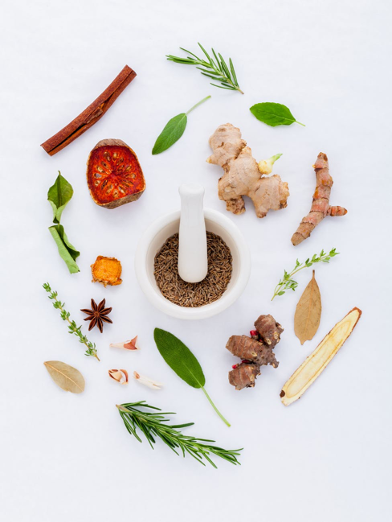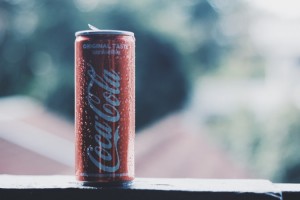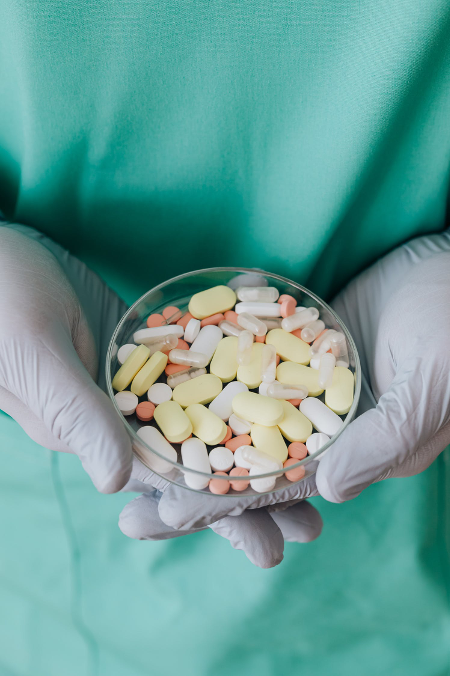
Your bones are continuously being broken down and rebuilt in tiny amounts. The good news is that it’s never too late to work on getting stronger bones.
Bones typically reach peak mass between 20-30 years of age before we start losing more than we gain. Most western diets contain insufficient substances, coupled with sedentary lifestyles which can contribute to poor bone mineral density-almost 50% of women over the age of 50 will have an osteoporosis related fracture.
There are many things we can do throughout our entire lifetime to help maintain optimal bone health. Here’s a basic recipe for success that anyone can follow to make sure that they supply their bod with the right nutrients and exercise needed to keep their bones strong into old age.
How to improve bone density
Improving your bone density is an easy task if you’ve got the right tools. By changing your lifestyle, altering your diet, and doing the right kinds of activities, you can increase your bone density and improve your overall health.
1. Exercise for healthy bones

Exercise maximises the body’s ability to attain peak bone mass and bone strength and prevents age- and menopause-related bone loss.
- Warburton, author of Health benefits of physical activity: the evidence suggests that regular exercise is associated with a reduction in osteoporotic fracture risk of up to 50% in both men and women over 65 years of age.
Resistance
 Resistance exercise is an effective way to strengthen bones. Resistance exercise includes weight training/lifting and anything else that causes muscles to work against an external resistance. An elastic resistance band is a great resistance training option that is gentle on joints and tendons and allows you to tailor exercises to your ability.
Resistance exercise is an effective way to strengthen bones. Resistance exercise includes weight training/lifting and anything else that causes muscles to work against an external resistance. An elastic resistance band is a great resistance training option that is gentle on joints and tendons and allows you to tailor exercises to your ability.
Weight-bearing
 Weight-bearing exercise refers to any exercises where your bones and muscles work against gravity. Weight-bearing exercises activate bone cells called osteoblasts, which form new bones. Examples include walking, running, jogging, dancing, hiking, and biking.
Weight-bearing exercise refers to any exercises where your bones and muscles work against gravity. Weight-bearing exercises activate bone cells called osteoblasts, which form new bones. Examples include walking, running, jogging, dancing, hiking, and biking.
High impact
Running, jogging, jumping, and rope skipping are all high impact exercise options for stimulating to bone cells. Annemarie Colbin, author of Food and Our Bones, recommends against big, fat running shoes, as you don’t want cushioning to reduce bone-boosting impact. She advises everyone to walk a lot and carry stuff.
2. Eat a nutrient-rich whole food diet

A crucial part of building strong bones is having a healthy, nutrient-rich diet. Follow a whole food diet that minimizes processed foods and eliminates sugar, low quality nutrient-deficient foods, additives, and preservatives.
An organic diet that maximizes whole foods will provide the necessary nutrients including proteins carbs and fats, along with the vitamins and minerals needed for total health and strong bones. When possible, eat organic, local foods with the following nutrients:
Calcium
Getting enough calcium is a good way to reduce your risk of osteoporosis and maintain bone density. Although dairy is commonly noted as one of the best sources for calcium, research by the Harvard School of Public Health has found that consuming large amounts of dairy may come with risks such as increased risk of ovarian and prostate cancer.
Luckily, there are plenty of non-dairy sources of calcium, including leafy green vegetables (kale, okra, collard greens), beans (soybeans, white beans), tofu, almonds, and fish (sardines, salmon, perch, rainbow trout).
Vitamin K
Vitamin K improves bone health by regulating excess calcium deposits, supporting bone integrity, and healing wounds. Vitamin K can is an key contributor to bone health, but it’s important to know the types of Vitamin K and what they do to improve your bone density.
- Vitamin K1: Also known by its scientific name, Phylloquinone, Vitamin K1 plays a vital role in blood clotting and is processed by the liver. This type of the vitamin is found naturally in green leafy vegetables such as kale, spinach, broccoli, mustard greens, and collard greens.
- Vitamin K2: Vitamin K2, AKA menaquinone, is processed by the blood vessel walls, bones, and tissues other than the liver. This type of the vitamin is created by the bacteria that line your gastrointestinal tract, and works together with other nutrients to distribute calcium to the right places in your body, keeping bones strong and arteries clear.
While both types of Vitamin K are beneficial to the body, Vitamin K2 contributes directly to good bone health.
Get the benefits of vitamin K2 by eating foods such as free range eggs, butter, dairy, cheeses like brie and gouda, fermented foods such as natto, and leafy greens like spinach, broccoli, kale, mustard greens, lettuce, watercress, and parsley.
Make sure you get 90-180 mcg of Vitamin K2 if you are a woman, while 120-180 mcg of the vitamin is healthy for men.
Protein
Studies have found a link between high protein diets and calcium retention and absorption. Eating a diet with adequate protein also leads to positive calcium absorption, increased bone density.
Despite previous uncertainty about the effects of protein on bone density, diets with adequate protein have been linked to an increase in bone density. The best way to get enough protein is to consume healthy natural sources of protein, such as free range, organic meats, fish, seafood, eggs, beans, and nuts.
Magnesium
Magnesium is another vital nutrient for optimal bone health. Optimising your magnesium intake is the best way to prevent osteoporosis and bone loss; both too little and too much magnesium have been linked to decreased bone health. Good sources of magnesium include dark leafy greens such as spinach, nuts and seeds such as squash and pumpkin seeds, fish such as mackerel, beans and lentils, whole grains such as brown rice, avocados, organic raw goats or cows milk, bananas, dried fruit such as figs, and dark chocolate.
Potassium
Potassium is an essential mineral for bone health, as well as proper brain, heart, kidney, and muscle function. The best sources of potassium are fresh fruits and vegetables, in particular, avocados, sweet potatoes, bananas, pumpkin, spinach, and mushrooms.
3. Maintain Vitamin D levels

Another essential component for bone health is Vitamin D. Vitamin D boosts bone density by maintaining calcium levels and the modelling and remodelling of bone. As with Vitamin K, there are a few different types of Vitamin D; the best type for bone health being Vitamin D3.
According to a recent study, 30% of all Australians were found to have Vitamin D deficiencies, despite living in one of the world’s sunniest countries. For those lacking or with too much Vitamin D, it’s essential to get levels of Vitamin D back into the normal range. Food, sunlight, and supplementation are all effective ways to regulate the Vitamin D levels in your body.
Getting 10 to 15 minutes of sun exposure three times per week is enough for most people. Edible sources of the vitamin include fatty fish like tuna, mackerel, and salmon, egg yolks, beef liver, cheese, fortified dairy products, and mushrooms that have been exposed to sun.
Having too much or too little Vitamin D can be harmful, so it is important to have your levels tested via a 25 hydroxy-vitamin D test. Through this method, Vitamin D levels can be tested, dietary and lifestyle changes can be made, and levels can be retested to ensure you are getting a healthy amount of Vitamin D.
When sunlight and food are not enough; you must supplement with Vitamin D3. Our skilled practitioners can provide clients with a high quality D3 supplement and find the dose that will bring vitamin D levels back into the upper end of normal for the reference range.
The amount needed will be different for every person, taking too little will be of little benefit. The amount taken must bring levels back into the healthy range.
4. Don’t drink fizzy soft drinks
 Fizzy soft drinks are one of the main contributors to poor bone mineral density. Maintaining a healthy diet with nutrient-rich whole foods is important for healthy bone density.
Fizzy soft drinks are one of the main contributors to poor bone mineral density. Maintaining a healthy diet with nutrient-rich whole foods is important for healthy bone density.
According to a study by the Journal of Osteoporosis, “frequent use of soft drinks and rare intake of fruits and vegetables might have a negative influence on the skeleton.” One study on the effects of soft drinks on the bone modelling of German children notes that “consumption of caffeinated and uncaffeinated soft drinks appears to have bone catabolic effects in boys and girls.”
If you want to maintain healthy bones and increase bone density, steer clear of soft drinks and opt for a healthy alternative such as tea, cold pressed juice, or kombucha.
5. Avoid certain medications
 Certain prescription and over the counter medications contribute to significant decreases in bone density and poor bone health. Commonly prescribed drugs for acid reflux, heartburn, and depression have been linked to bone loss and fractures.
Certain prescription and over the counter medications contribute to significant decreases in bone density and poor bone health. Commonly prescribed drugs for acid reflux, heartburn, and depression have been linked to bone loss and fractures.
If possible, avoid taking these medications, and instead opt for a natural method such as diet and lifestyle changes:
Commonly prescribed Proton Pump Inhibitors (PPIs):
- omeprazole (Prilosec, Prilosec OTC)
- aspirin and omeprazole (Yosprala)
- lansoprazole (Prevacid, Prevacid IV, Prevacid 24-Hour)
- dexlansoprazole (Dexilent, Dexilent Solutab)
- rabeprazole (Aciphex, Aciphex Sprinkle)
- pantoprazole (Protonix)
- esomeprazole (Nexium, Nexium IV, Nexium 24 HR)
- esomeprazole magnesium/naproxen (Vimovo)
- omeprazole/sodium bicarbonate (Zegerid, Zegerid OTC)
Commonly prescribed antidepressants: Selective Serotonin Receptor Inhibitors (SSRIs)
- Citalopram (Celexa)
- Escitalopram (Lexapro, Cipralex)
- Paroxetine (Paxil, Seroxat)
- Fluoxetine (Prozac)
- Fluvoxamine (Luvox)
- Sertraline (Zoloft, Lustral)
- Zimelidine (Normud, Zelmid) and Indalpine (Upstene) were also formerly used as antidepressants, but were withdrawn from the market.
6. Stop taking calcium supplements
Despite their claims to increase bone density and decrease the risk of osteoporosis, many studies have found that calcium supplements do not significantly affect bone health or lessen the risk of fractures.
The intake of calcium supplements may also be associated with an increased risk of cardiovascular events such as heart attacks. The best way to get enough calcium is to avoid calcium supplement and consume a diet high in natural nutrients by eating a wide range of whole foods.
7. Hormonal Balance
It is well known that as hormones decline, bone density decreases. When stress is high, the decline is more rapid.
By restoring optimal levels of hormones, our body’s ability to maintain bone density increases. Focusing on all aspects of health including the endocrine system is called holistic healing.
Exercise has the most beneficial effects on bones during the years when oestrogen is available and the dietary intake of essential nutrients is adequate.
The hormones parathyroid, oestrogen, progesterone, and cortisol influence bone health. A balance of each in healthy amounts paves the way for high calcium absorption and strong bones.
Want to improve your bone density?
Stop Smoking

Smokers are proven to have a lower body weight and bone mineral density, as well as an increased risk of lung, throat, kidney, cervix, and colon cancer. Smoking is all around bad for your health and will detract from the strength of your bones.
High Fibre Diets
High fibre diets can also reduce calcium absorption. However, the average western diet is not likely to have an excess of fibre.
Caffeine & Alcohol

Drinking coffee or beer will also result in heightened urinary excretion of calcium for a couple of hours after consumption. Heavy coffee drinkers will feel this the most. It’s best to consume coffee and alcohol sparingly if you want to improve your bone health.
Soft drinks
Soft drinks are high in phosphorous. Excessive intake of phosphorus can increase calcium loss from the bone.
Annemarie Colbin, PhD, author of Food and Our Bones is also low-key on milk; “You see the most fractures in countries that drink a lot of milk,” she says. “I am not too keen on dairy.”
A recipe for success
There you have it, the key to optimal bone health is an intricate combination of a diet high in vitamins and minerals, regular exercise, and maintenance of hormone levels.
At Effortless Superhuman, we believe that there is a genius within everybody.
Our holistic healing practitioners address key issues in clients’ diet, exercise, and lifestyle to improve bone density and overall wellbeing. We are dedicated to advancing your health and wellness, and are committed to helping you reach your health and fitness goals; whether you’re a weekend warrior, gym junkie, or Olympic athlete, we’ve got you covered.
Results may vary.

May 15, 2022 at 6:14 PM
Good advice. More greens for me and less calcium through pills though the primary care MD prescribed it. Older woman here surviving breast cancer. Difficult to reconcile conflicting points of view and dairy is supposedly had for breast cancer survivors like myself. Why isn't there some consensus by now ?